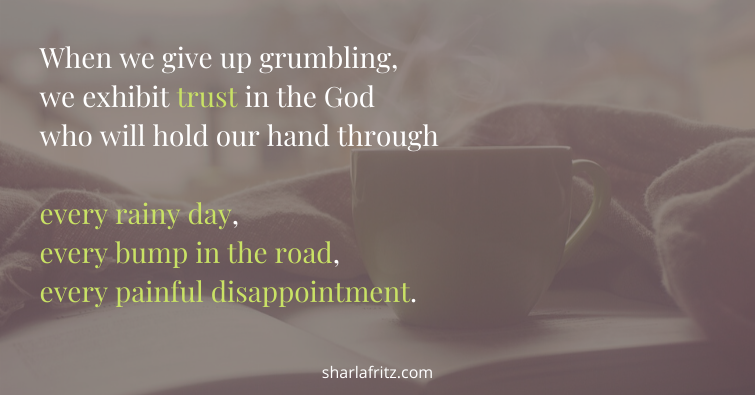The intersection of a biblical story and the some unruly weeds taught me a lesson about contentment.
The weeds in my garden are staging a coup. They are threatening to take over the flowers that are trying to bloom. I need to spend a little time pulling the unwanted plants out and fertilizing the flowers I want to enjoy.
Sometimes my attitudes also need a little weeding. I keep watering the weeds of “more” and allowing them to choke out my contentment.
I already have a rich life and yet I always seem to be wanting more and more.
Rachel and Leah
A while back I reread the story of Leah and Rachel and noticed the two sisters’ constant desire for more. From the time they got married to Jacob, they each wanted what the other had. Leah wanted the adoring love of her husband that Rachel obviously had and Rachel wanted children. Especially when Leah gave birth multiple times and Rachel’s own cradle was still empty.
When I read the story again in Genesis 29 I saw that the sisters’ discontent was especially evident in the names they gave their children.
Leah named her first three boys:
- Reuben which sounds like the Hebrew for “God has seen my misery.”
- Simeon, which means “one who hears,” and said, “Because the Lord has heard that I am hated, He has given me this son also” (Genesis 29:33).
- Levi, which sounds like a Hebrew term that means “attached.” Leah said, “Now this time my husband will be attached to me, because I have borne him three sons” (Gen. 29:34).
Rachel was no better. She was miserable when she was waiting for a baby while Leah gave birth to six sons, Leah’s servant had two sons, and Rachel’s servant had two baby boys. But when God gave her a child she didn’t give him a name that meant, “Thank you, God.”
Rachel named her first son, the son she had waited years and years for, Joseph–which means–“may he add.” Her first words weren’t, “I praise you God for this wonderful gift of life. They were, “May the Lord add to me another son.”
I was dumbfounded. How could she not even thank God before she asked for more?

Gratitude Tames the Weeds of “More”
Then I realized that I do the same thing. Often when a prayer has been answered, I forget to say, “Thank you.” I don’t pause in gratitude.
Instead, I ask for more. I see the next thing I want and once again am discontent until I get it.
Maybe if Rachel would have taken the time to fully enjoy the blessing of Joseph, she would have been content. Maybe if I would remember to say, “Thank you Lord” the weeds of “more” would be tamed.
Thankfulness yanks at the weeds of discontent. It pulls at the attitude of dissatisfaction and gives peace room to grow.
Gratitude allows contentment to bloom.
Next step: Pay attention to your words today. Did words of discontent outnumber words of gratitude? Find three simple things you can be grateful for and thank God for them.











